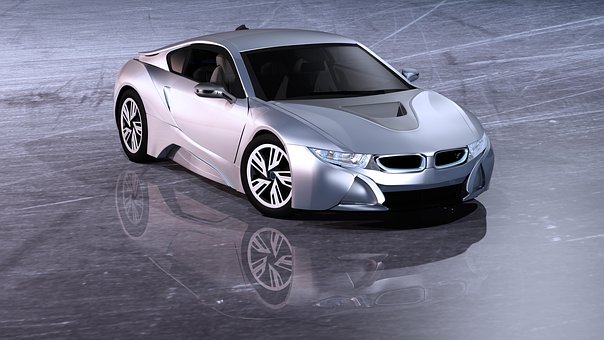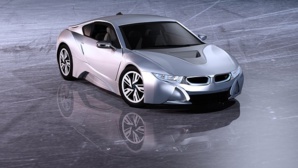Mining analysts and executives have disclosed, although battery makers are increasingly turning to nickel to help power the global boom in electric cars, only 50% of the world’s producers of nickel are however likely to benefit.
Nickel is seeing a high demand since lithium batteries, which contain nickel and help the battery maintain its charge for a long period of time, are being installed across flagship models of the world’s biggest electric carmakers, including Tesla and General Motors.
The boom in the battery market promises a boom for nickel miners however half of its global supply is comprised of pig iron and ferronickel and is thus unsuitable for battery production, according to analysts at UBS.
Some of the world’s biggest producers of nickel, including Vale, BHP Norilsk Nickel, and Sumitomo Corp, are moving rapidly to take advantage and seal long-term supply deals with battery producers.
Smaller producers, such as Australia’s Independence Group and Western Areas are also set to gain big.
These producers are building plants to convert the metal into a powder-like sulfate which is particularly suited for usage in batteries.
Incidentally, sulfate nickel regularly fetches a price premium over London Metal Exchange-traded nickel.
However, “Not everyone will be a winner,” said Dan Lougher, chief executive of Western Areas. “We’ve met with quite a number of battery manufacturers, and they are quite specific on their requirements. Nickel is an important component of these batteries.”
Among the companies who have not made the cut, include those who have lower-grade nickel mines such as Glencore’s Koniambo in New Caledonia, Cerro Matoso in Columbia, and Anglo American’s mines in Brazil.
“The market dynamics will change in the coming years as a result of electric vehicles,” said Peter Bradford, chief executive of Independence Group Ltd, which is aiming to produce around 25,0000 tonnes of high-purity nickel this year from a new mine. “Battery growth is going to disrupt the market”.
Big companies are moving in and signing big deals.
Case in point: in June, Norilsk, the world’s largest nickel miner, announced a deal with German battery maker, BASF.
BHP unveiled plans to retool its Nickel West division to start shipping nickel to battery manufacturers beginning in April 2019. This is a huge development for Nickel West since, only two years ago it was in red and was set to cut its workforce by 2000.
As per Eduard Haegel, division chief of Nickel West, demand for batteries for EVs are set to grow by 90% of the division’s annual output of 100,000 tonnes within the next six years.
Vale is said to scouting for a partner to turnaround its loss-making New Caledonia nickel complex. The Financial Times has reported that it has begun holding talks with GEM Co, a Chinese battery maker.
“If we are not successful, we’ll have to face the reality, which is this operation is holding the company back,” Luciano Siani Pires, Vale’s chief financial officer, said, referring to the New Caledonian business.
Significantly, plants that have been shut down and see renewed activity.
According to Posche, the manufacturing of electric cars are largely driving up the demand for nickel-rich batteries. The German carmaker expects the ratio of nickel to cobalt and manganese in a typical battery is set to rise eight-fold as electric cars join the mainstream.
As per UBS, 15 million electric vehicles are set to be on the road by 2025, thus lifting the demand for nickel by 300,000-900,000 tonnes, equivalent to 10%-40%of the current market.
References:
reuters.com
Nickel is seeing a high demand since lithium batteries, which contain nickel and help the battery maintain its charge for a long period of time, are being installed across flagship models of the world’s biggest electric carmakers, including Tesla and General Motors.
The boom in the battery market promises a boom for nickel miners however half of its global supply is comprised of pig iron and ferronickel and is thus unsuitable for battery production, according to analysts at UBS.
Some of the world’s biggest producers of nickel, including Vale, BHP Norilsk Nickel, and Sumitomo Corp, are moving rapidly to take advantage and seal long-term supply deals with battery producers.
Smaller producers, such as Australia’s Independence Group and Western Areas are also set to gain big.
These producers are building plants to convert the metal into a powder-like sulfate which is particularly suited for usage in batteries.
Incidentally, sulfate nickel regularly fetches a price premium over London Metal Exchange-traded nickel.
However, “Not everyone will be a winner,” said Dan Lougher, chief executive of Western Areas. “We’ve met with quite a number of battery manufacturers, and they are quite specific on their requirements. Nickel is an important component of these batteries.”
Among the companies who have not made the cut, include those who have lower-grade nickel mines such as Glencore’s Koniambo in New Caledonia, Cerro Matoso in Columbia, and Anglo American’s mines in Brazil.
“The market dynamics will change in the coming years as a result of electric vehicles,” said Peter Bradford, chief executive of Independence Group Ltd, which is aiming to produce around 25,0000 tonnes of high-purity nickel this year from a new mine. “Battery growth is going to disrupt the market”.
Big companies are moving in and signing big deals.
Case in point: in June, Norilsk, the world’s largest nickel miner, announced a deal with German battery maker, BASF.
BHP unveiled plans to retool its Nickel West division to start shipping nickel to battery manufacturers beginning in April 2019. This is a huge development for Nickel West since, only two years ago it was in red and was set to cut its workforce by 2000.
As per Eduard Haegel, division chief of Nickel West, demand for batteries for EVs are set to grow by 90% of the division’s annual output of 100,000 tonnes within the next six years.
Vale is said to scouting for a partner to turnaround its loss-making New Caledonia nickel complex. The Financial Times has reported that it has begun holding talks with GEM Co, a Chinese battery maker.
“If we are not successful, we’ll have to face the reality, which is this operation is holding the company back,” Luciano Siani Pires, Vale’s chief financial officer, said, referring to the New Caledonian business.
Significantly, plants that have been shut down and see renewed activity.
According to Posche, the manufacturing of electric cars are largely driving up the demand for nickel-rich batteries. The German carmaker expects the ratio of nickel to cobalt and manganese in a typical battery is set to rise eight-fold as electric cars join the mainstream.
As per UBS, 15 million electric vehicles are set to be on the road by 2025, thus lifting the demand for nickel by 300,000-900,000 tonnes, equivalent to 10%-40%of the current market.
References:
reuters.com






